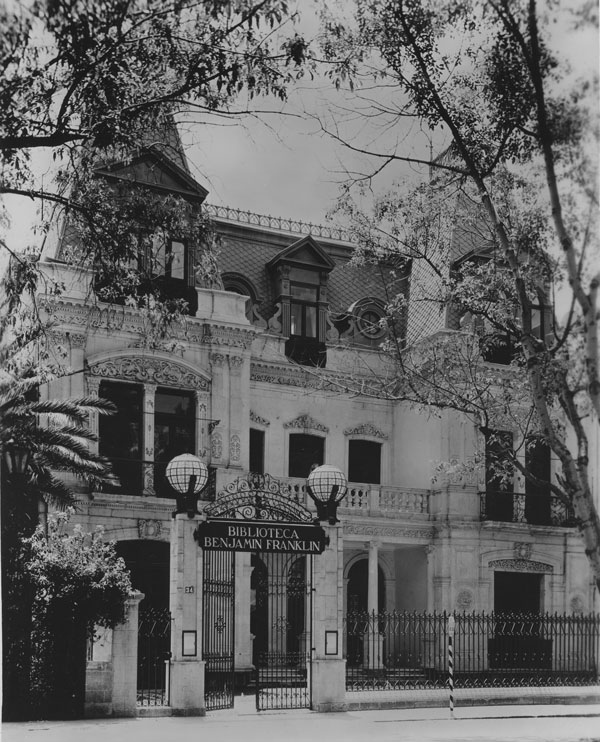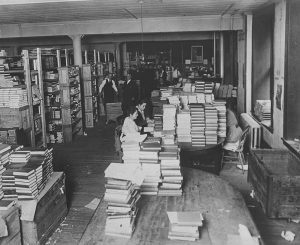
On April 13, 1942, General Manuel Ávila Comacho, President of the Republic of Mexico, spoke at the formal dedication of the Biblioteca Benjamin Franklin in Mexico City. The dedication of the library, made possible by a grant from the Coordinator of Inter-American Affairs to the American Library Association, was attended by Mexican officials, American embassy staff, and Mexicans and Americans active in the library organization. Presentations and receptions occurred throughout the week for library organizers and contributors, university representatives, and the public. Continue reading “A Testimony of Friendship”
